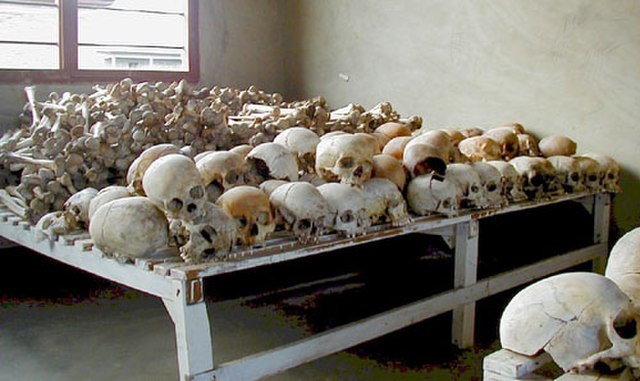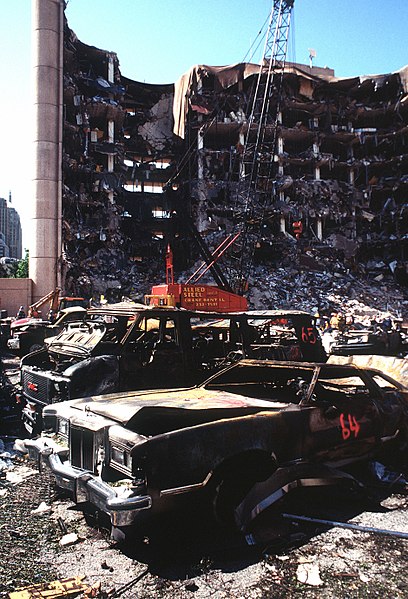The 1990s was a decade that began on January 1, 1990, and ended on December 31, 1999. Known as the "post-Cold War decade", the 1990s are culturally imagined as the period from the Revolutions of 1989 until the September 11 attacks in 2001. The dissolution of the Soviet Union marked the end of Russia's status as a superpower, the end of a multipolar world, and rise of anti-Western sentiment. China was still recovering from a politically and economically turbulent period. This allowed the US to emerge as the world's sole superpower, creating relative peace and prosperity for many western countries. During this decade, the world population grew from 5.3 to 6.1 billion.
Executive council building burns in Sarajevo after being hit by Bosnian Serb artillery in the Bosnian War.
Rwandan genocide: Genocide victims in Murambi Technical School. Estimates put the death toll of the Rwandan genocide as high as 800,000 people.
The federal building that was bombed in the Oklahoma City bombing two days after the bombing, viewed from across the adjacent parking lot.
Nelson Mandela voting in 1994, after thirty years of imprisonment.
The post–Cold War era is a period of history that follows the end of the Cold War, which represents history after the dissolution of the Soviet Union in December 1991. This period saw many former Soviet republics become sovereign nations, as well as the introduction of market economies in eastern Europe. This period also marked the United States becoming the world's sole superpower.
Nelson Mandela casting his vote in the 1994 South African elections.
Image: Boris Yeltsin 22 August 1991 1





